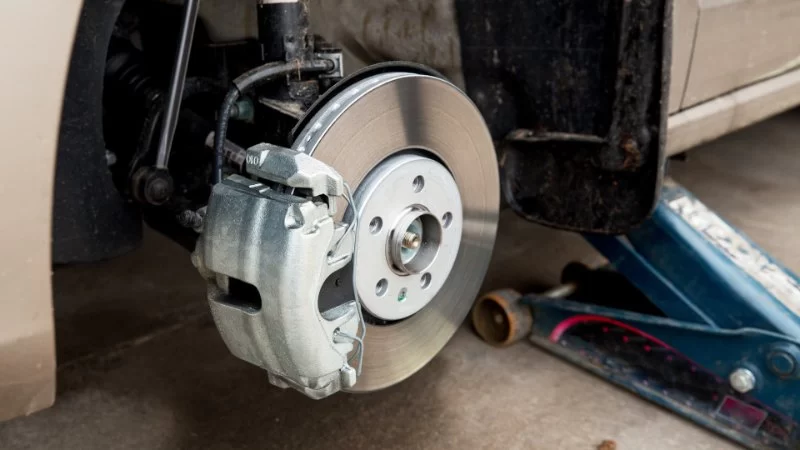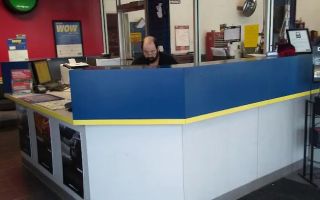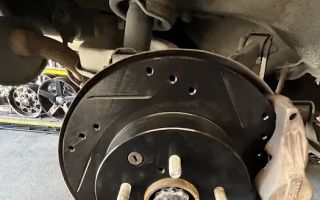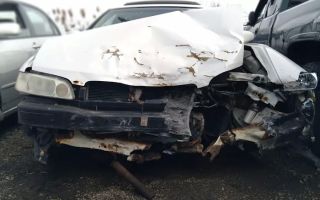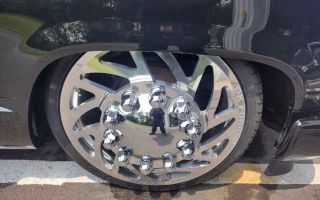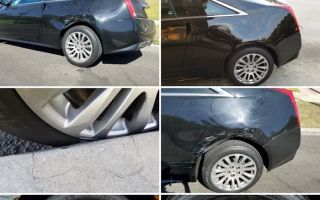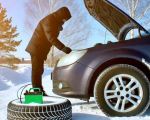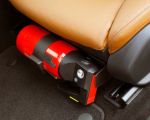- Why-Your-Parking-Brake-May-Be-Sticking
- Warning-Signs-That-Your-Parking-Brake-Is-Stuck
- How-to-Fix-a-Stuck-Parking-Brake-Safely
- When-Professional-Help-Is-Necessary
- Driver-Stories-and-Real-World-Examples
- How-to-Prevent-Your-Parking-Brake-from-Sticking-Long-Term
Why Your Parking Brake May Be Sticking
Finding that your car’s parking brake sticks can be frustrating, especially if you’re trying to head out quickly or maneuver in a tight parking area. This issue is more common than many U.S. drivers realize, and understanding the underlying reasons helps you respond confidently and safely.
One of the most frequent causes is corrosion inside the brake cable. Cars driven in regions with cold winters, humidity, or salted roads often experience rust buildup. Over time, the brake cable loses flexibility and refuses to release. In freezing temperatures, moisture trapped inside the mechanism can harden, making the brake feel frozen in place. Older vehicles or those rarely driven may develop mechanical stiffness simply from lack of use.
Another culprit is worn brake components inside the rear drums or calipers. When these parts deteriorate, the mechanism may fail to retract properly. If your brake handle or pedal feels unusually loose or tight, worn components may be the reason. For unclear mechanical issues, seeking guidance from services like Rescue & Towing can simplify the troubleshooting process.

Pick Your Part - Help Yourself
1232 Blinn Ave, Wilmington, CA 90744, USA
Warning Signs That Your Parking Brake Is Stuck
Before attempting repairs, it’s helpful to recognize the early signs of a sticking parking brake. Some are obvious, but others appear gradually during daily driving.

Pick Your Part - Greer
13054 E Wade Hampton Blvd, Greer, SC 29651, USA
1. Resistance When Releasing the Brake
If the release lever or pedal feels tight or doesn't snap back as usual, the brake may be partially engaged. Many drivers notice this when the car struggles to accelerate from a full stop.
2. Burning Smell After Driving
This is one of the most serious symptoms. If the parking brake sticks while you’re driving, friction creates heat that burns the brake pads or shoes. A strong burning odor may suggest the brake isn’t fully disengaging.
3. Vehicle Pulling to One Side
A dragging brake can cause your car to veer slightly during acceleration. The more the brake sticks, the more noticeable the pull becomes.
4. Warning Indicators on the Dashboard
Some modern cars detect when the parking brake hasn’t fully disengaged, triggering a warning light. If the light flickers or stays on unexpectedly, the brake may be sticking.
How to Fix a Stuck Parking Brake Safely
Once you identify that your car’s parking brake is stuck, the next step is safely addressing the issue. Some fixes are simple, while others require mechanical expertise.
Gently Rock the Vehicle
For brakes that are only partially stuck, gently rocking the vehicle forward and backward can help release internal tension. This works best on flat surfaces where the car can move freely.
Warm the Brake Mechanism in Cold Weather
If freezing temperatures caused the mechanism to lock up, warming the brakes can help. Let the car idle for a few minutes or use a safe heat source to thaw the components. Avoid extreme heat, which may damage the brake system.
Inspect the Brake Cable
Look underneath the vehicle—if possible—and check for obvious signs of corrosion or damage. A stiff or rusty cable likely needs replacement. This job is best left to professionals, but visual inspection can guide next steps.
Release the Brake Manually
Some cars allow manual release using access panels near the brake assembly. While this method may temporarily free the brake, you should still get the system inspected for underlying damage.
Use Professional Assistance for Mechanical Binding
If drums, pads, or calipers are the issue, a mechanic must take apart the assembly. These repairs involve specialized tools and safety precautions. Rescue & Towing can help you reach a trusted auto repair provider if the car shouldn’t be driven.
When Professional Help Is Necessary
Not all parking brake problems can be solved with simple fixes. If the brake remains stuck after basic troubleshooting, or if you experience burning smells, smoking wheels, or poor acceleration, seek professional service immediately.
Driving with a partially engaged brake can damage rotors, pads, tires, and even the transmission. A technician can diagnose mechanical binding, cable failures, or hydraulic issues more precisely than DIY methods allow.
For emergencies where your car cannot move safely, reaching out to Rescue & Towing ensures your vehicle gets transported to a qualified repair shop without risking further damage.
Driver Stories and Real-World Examples
One driver in Minnesota described leaving his car overnight during a severe snowstorm. The next morning, his parking brake wouldn’t move at all. After discovering frozen moisture inside the cable, he had the system thawed and later replaced the worn cable to prevent future incidents.
Another example comes from a driver in Texas who noticed his SUV dragging after releasing the brake. A mechanic found worn pads stuck inside the brake assembly—likely caused by dust buildup from off-road driving. The repair was straightforward, but catching it early helped avoid brake failure on the highway.
How to Prevent Your Parking Brake from Sticking Long Term
Regular maintenance is the best defense against a sticking parking brake. Keeping the brake system clean, replacing worn components, and avoiding unnecessary engagements in freezing weather all reduce long-term issues.
Inspecting the brake cable during routine service helps detect corrosion early. Drivers in cold or humid regions should pay extra attention to seasonal changes, as weather can significantly affect brake flexibility.
If you want reliable guidance or need help connecting with trusted brake repair specialists, Rescue & Towing provides helpful resources matched to your location. Taking small preventive steps ensures your car remains safe, responsive, and road-ready at all times.

